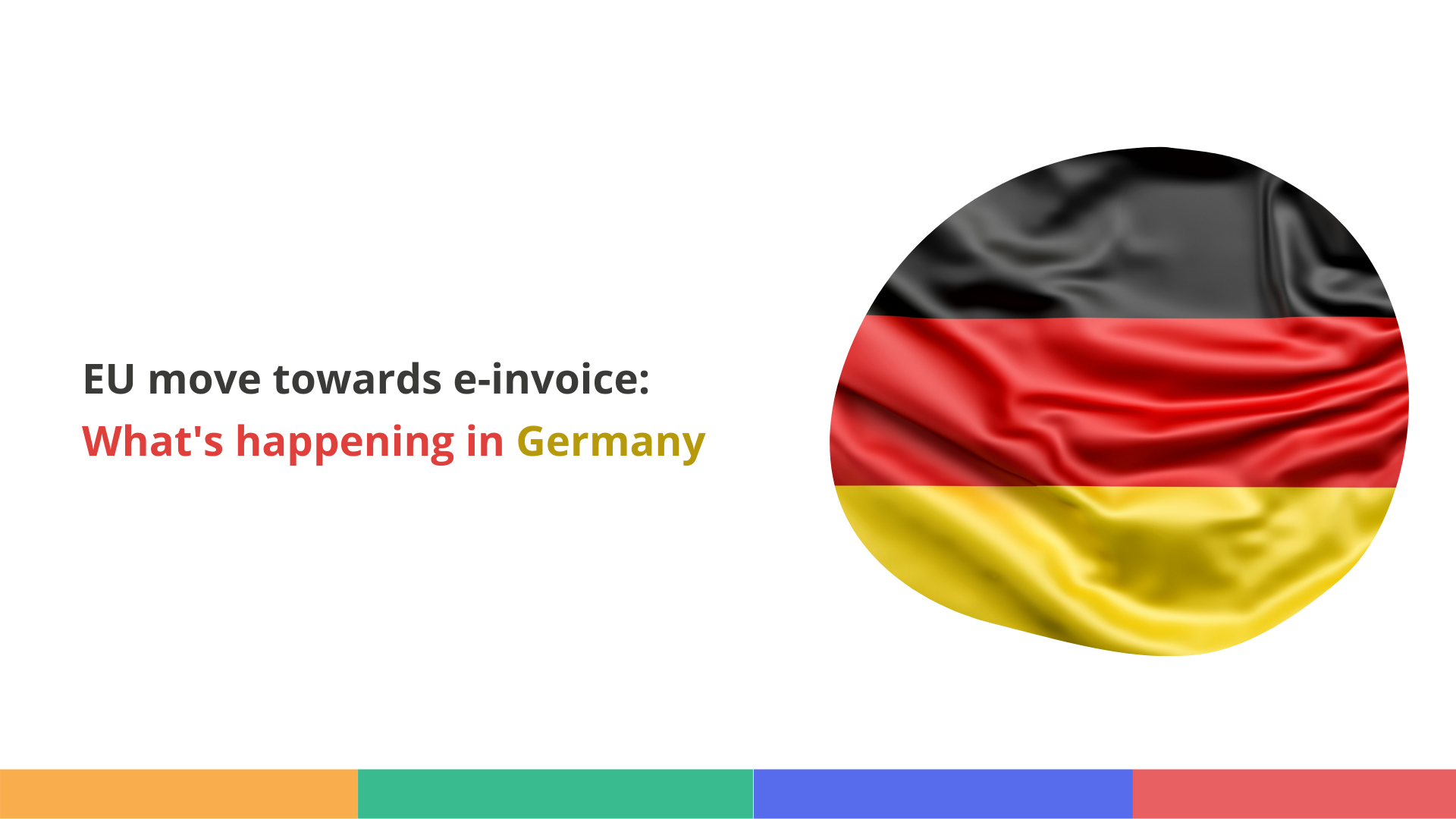Discover how e-invoicing in Germany is evolving with hybrid formats like ZUGFeRD and XRechnung for compliance and efficiency.
In today’s evolving digital landscape, the shift toward e-invoicing is becoming increasingly important for businesses, especially in the European Union, where electronic invoicing has gained substantial traction. While traditional invoicing methods are still in use, many businesses are turning to hybrid e-invoice options to simplify and standardize their invoicing processes. These hybrid systems combine the flexibility of digital invoicing with the ease of use and compliance benefits that structured formats offer. Two of the most widely discussed hybrid e-invoice formats in the European market are ZUGFeRD and XRechnung.
Before diving into these options, it’s important to understand what hybrid e-invoicing means. Hybrid e-invoicing formats are designed to bridge the gap between traditional PDF invoices and fully structured electronic invoices, like XML-based formats. While a traditional PDF might be easy to create and share, it’s not structured enough to facilitate automated processing by accounting or financial systems. This is where hybrid formats come in: they allow businesses to send invoices as PDF documents that contain both the human-readable format and embedded structured data that can be easily extracted and processed by automated systems. This feature enables businesses to comply with legal and regulatory requirements while maintaining the convenience of familiar PDF files.
One such hybrid e-invoice format is ZUGFeRD. ZUGFeRD, which stands for Zentraler User Guide des Forums elektronische Rechnung Deutschland (Central User Guide of the Forum for Electronic Invoicing in Germany), was developed in Germany and is becoming increasingly popular in European countries. ZUGFeRD invoices are created as PDFs that contain machine-readable XML data embedded within the document. This XML data includes structured details about the transaction, such as product descriptions, quantities, and prices. ZUGFeRD enables businesses to send invoices in a user-friendly PDF format, which can be read easily by humans, while simultaneously providing the structured data needed for automated processing by accounting systems or tax authorities. This dual-purpose approach simplifies the invoicing process for both businesses and customers while ensuring that invoices meet legal and regulatory standards.
Another hybrid e-invoice format that has gained attention in the European Union is XRechnung. XRechnung is an e-invoicing standard developed for public sector transactions in Germany. It is part of the EU’s push to standardize e-invoicing for government procurement. Like ZUGFeRD, XRechnung allows for structured data to be embedded in an invoice, but XRechnung is designed specifically for public procurement processes and follows the EN 16931 standard set by the European Union for e-invoicing. XRechnung invoices are XML-based, and they can be easily processed by the systems used by government entities to handle procurement and payments. While it is focused on public sector transactions, the XRechnung format has been adopted in several other countries as a way to ensure that businesses engaging in public procurement can issue compliant invoices. The format has gained traction as the EU moves toward fully standardized e-invoicing, particularly with the upcoming regulations that will make e-invoicing mandatory for public procurement transactions across member states.
The rise of hybrid e-invoices like ZUGFeRD and XRechnung has significantly transformed how businesses issue and process invoices. These formats make it easier for businesses to comply with regulatory requirements while retaining the flexibility of traditional invoicing formats. As more EU countries implement digital and e-invoicing laws, businesses are finding that hybrid formats offer the perfect balance between tradition and innovation. These formats also simplify cross-border transactions within the EU, as they enable businesses to generate invoices that comply with local regulations while adhering to broader EU standards for digital invoicing.
For instance, the ZUGFeRD format is especially appealing to small and medium-sized businesses (SMBs) that may lack the resources or infrastructure to fully embrace structured electronic invoicing formats like XML or EDIFACT. By using the ZUGFeRD hybrid format, businesses can still take advantage of automated processing and comply with e-invoicing requirements, without completely abandoning traditional methods. Similarly, XRechnung is vital for businesses that work with public sector clients in Germany or other EU countries that have adopted it. The ability to issue compliant, structured invoices in a hybrid format allows these businesses to meet legal obligations without overhauling their entire invoicing process.
In the European Union, the introduction of EN 16931, the European Standard for e-invoicing, has driven the adoption of hybrid formats like ZUGFeRD and XRechnung. This standard sets the requirements for e-invoices in cross-border transactions within the EU, and it mandates the use of structured formats to ensure interoperability between different member states. ZUGFeRD and XRechnung comply with this standard, which allows businesses to easily exchange electronic invoices across the EU while adhering to the legal frameworks of individual countries. As the EU moves towards more standardized and integrated digital invoicing systems, the role of hybrid formats in simplifying compliance and improving operational efficiency will continue to grow.
In the context of e-invoice regulations in the EU, the shift to electronic invoicing represents a significant change. The EU is gradually moving toward mandatory e-invoicing for all businesses involved in public procurement. As part of this push, hybrid formats such as ZUGFeRD and XRechnung provide an effective solution for businesses looking to comply with these regulations. They simplify the transition from paper-based to fully electronic systems, ensuring businesses can meet evolving requirements while still using a format familiar to many users.
In conclusion, hybrid e-invoice formats like ZUGFeRD and XRechnung represent an important development in the ongoing shift toward e-invoicing in Europe. By combining the familiarity of PDF invoices with embedded structured data, these formats offer a practical solution for businesses looking to streamline their invoicing process while ensuring compliance with local and EU regulations. As the EU continues to push for the widespread adoption of electronic invoicing, particularly for public procurement, these hybrid formats will play an essential role in helping businesses stay compliant, save time, and improve efficiency in their financial operations.




